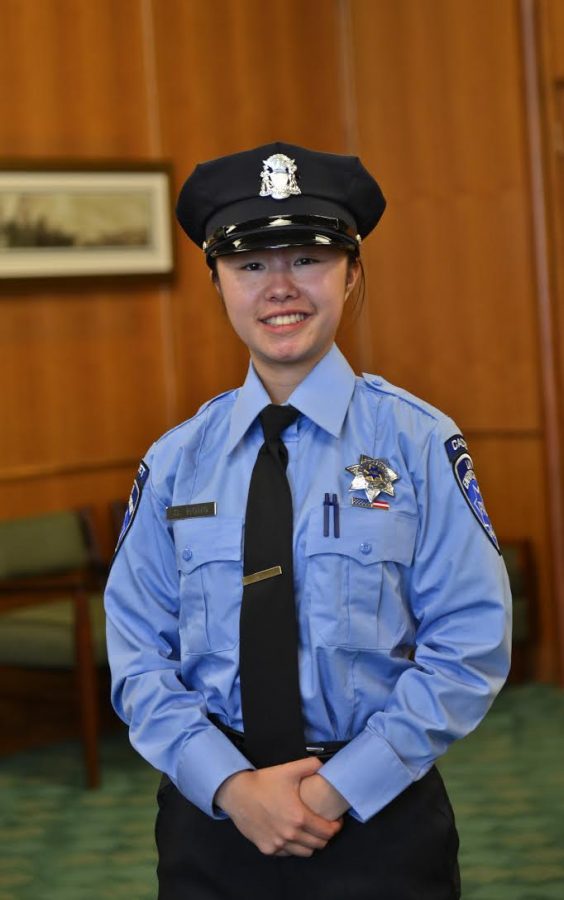Senior joins ‘forces’ with the police force
Cadet Program with the SFPD teaches policing basics.
February 1, 2017
While many of her classmates lace-up cleats for soccer practice or pack up rackets for tennis, senior Sarah Hong steps into her black tactical boots before heading over to the San Francisco Police Department Headquarters in Mission Bay.
Hong learned about the San Francisco Police Activities League Law Enforcement Cadet Program through senior Kailey Honniball, whose father is a retired police officer. After getting the program accepted her, she began her time with SFPD in June.
“I thought it was perfect so I applied, and then I was in,” Hong said. “It’s a really short application. You just put in your basic information, you write a short essay, and you have to maintain good grades.”
Hong says her interest in law enforcement arose from the urge to give back to the community.
“Even two years ago I would never see myself in this field,” Hong said, “but in school we talk about making a change and making a difference. I felt it was time I actually do something with my life.”
As a cadet, Hong learns about the basics of policing in classes taught by SF Police Academy instructors. She participates in activities including the Emergency Vehicles Operations Training Course, Firearm Training Simulator, scenario simulations, and learns radio procedures.
“The best part of the job is interacting and engaging with the community,” SFPD officer Therese Deignan, who works with Hong, said. “The most meaningful part for me is when people say ‘Thank you for your service’ and you actually get to talk to them for a little bit.”
Officers often develop a sense of comradery while working together, sharing experiences which can be hard for other people to relate to, according to Hong.
“In the department, we’re like family,” Hong said. “We’re all one huge team and working with the officers is the greatest thing ever. They’ve really become my mentors, and they’ll do anything you need. They’ll have your back. They’ll support you.”
It is important for young people getting involved with law enforcement to develop a sense of empathy early on with the people on the other side of the law enforcement equation, according to SHHS history teacher Phil Downs, who is a retired SFPD officer.
“I would tell Sarah, get involved in service,” Downs said. “Work with people on the margins because this will give you some experience as to their station in life, the things they deal with, their perspective, because that’s who you’re gonna be dealing with. People who are marginalized are often victims. They can’t always advocate for themselves.”
Law enforcement has become a sensitive topic in the past few years for many people, with police shootings of unarmed civilians being a focal point of news coverage. Remembering the other side of the spectrum — that police are people too — helps ease any lack in understanding and makes for the most productive communication, according to Deignan.
“A lot of people hear stories and use them to generalize all of law enforcement,” Hong said. “I don’t feel that should be what’s happening because what one officer does isn’t a reflection of what everyone else is like. It gets generalized on me and my partners, and that’s not accurate.”
“Unfortunately we don’t have enough time to talk to everybody and change their mind,” Deignan said. “You can only do your best in your interaction with people and if they have a negative connotation towards the badge or the star, you can only do what you can at that scene.”
From her time at SFPD, Hong says one of her main take-aways is remembering that people become police officers to protect and serve, not to be an authority in the streets.
There are people who get involved in law enforcement because they want to exercise their power over people, but those people are the minority, according to Downs.
“I don’t want to tell anyone what to believe or what your opinions should be, but walk a mile in their shoes,” Hong said. “You don’t know their experiences, you don’t know what they go through and their purpose, at least for SFPD and the officers I work with, they genuinely care about the communities they serve.”










